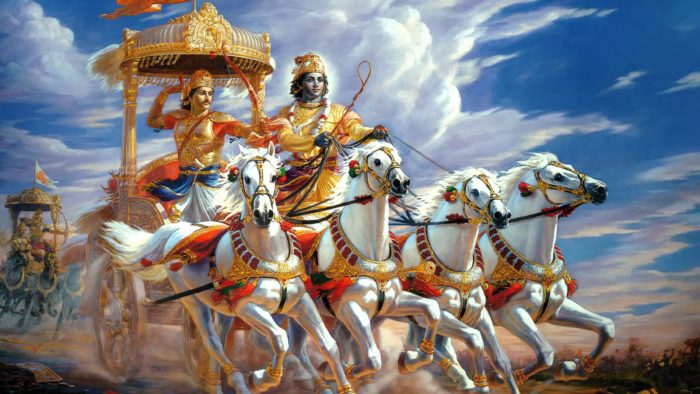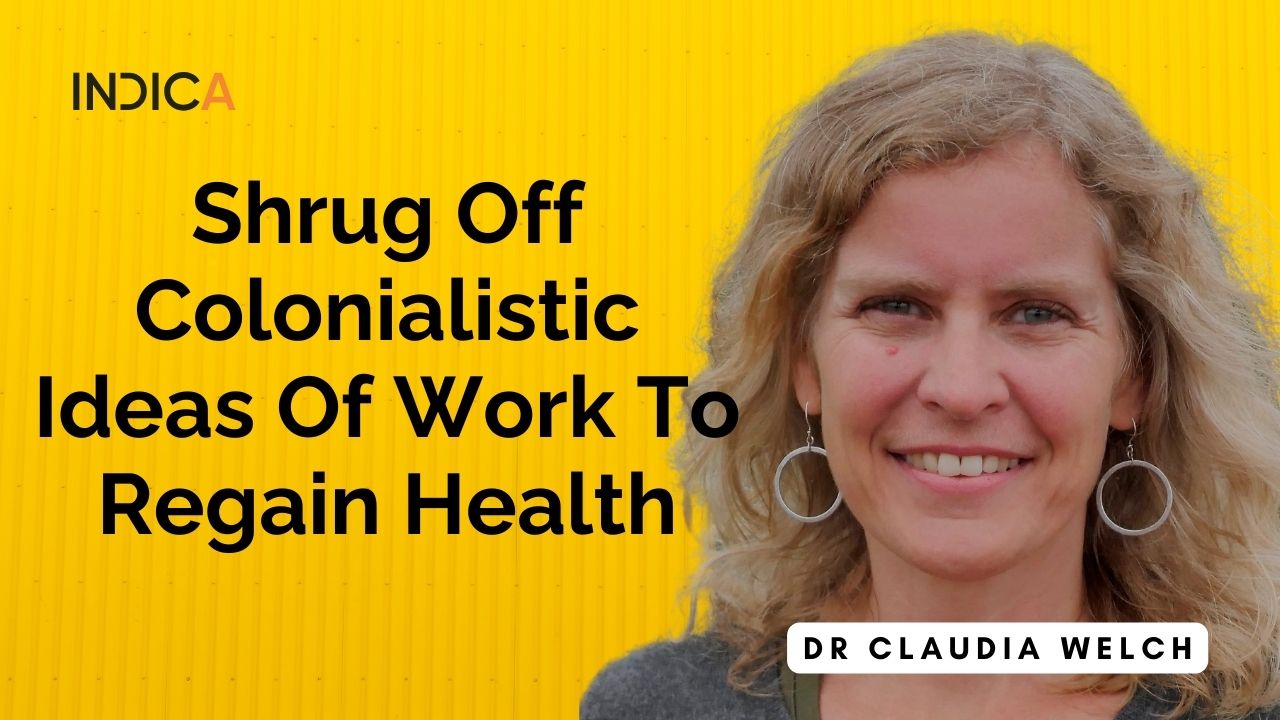The European Heart Journal, a peer-reviewed journal of cardiology published by Oxford University says the Bhagavad Gita has lessons for these difficult times in an article titled ‘COVID-19 and the healthcare workers’. Authors Dr Ankur Kalra, Dr Erin D Michos and Dr Kavitha M Chinnayin write that Covid is “a war unlike any other… It is, after all, a war that would decide ‘dharma’ - the inherent order of reality that is nurtured by right thought and action.”
The article compares the dilemma of Arjuna, who was on the side of the righteous but tarried as he didn’t want to war with loved ones with the Covid situation where healthcare workers have had to make tough choices. “In the Bhagavad Gita (the ‘Lord’s Song’), Krishna taught Arjuna the ways of skilful living. In the 5,000 years since the description of the war of Kurukshetra, the Bhagavad Gita has proven to be an accurate guide for living a fulfilling life - a life aligned with dharma.”
The authors say in the midst of the pandemic, the Gita is extremely relevant – “the healthcare worker is Arjuna, hospitals are battlegrounds for the war against the virus and misinformation, the lack of a cure or an effective containment strategy, and a system that has failed us. Amidst this chaos, the healthcare worker is being guided by dharma and a deep sense of purpose to do what is right and not become paralysed by the outcome.”
The Covid crisis has been a test of mettle for the medical community. Swamped by conflicting information and strategies, doctors on the ground have had to make decisions at a scale and rate for which they are not equipped. Says the article: “The novel coronavirus disease 2019 (COVID-19) pandemic has put healthcare workers at odds with their profession. COVID-19 has challenged clinicians’ professional commitment to their communities and to humanity, accompanied by a sacrifice of their own safety and of the safety and needs of their families. It has become a litmus test of our character, our focus, our strength, and our passion to care for the sickest, in the sincere hope that even amidst despair and desperation, we are somehow making a difference in every life (and many lives associated with that one life) that we have the privilege to touch and heal.”
Existential issues addressed in the Gita have come to fore. Whose life is more precious, are there shortcuts to winning this war, should those with more power, privilege and most resources lead the battle? “This crisis has understandably created inner turmoil for the clinician; yet Bhagavad Gita teaches not to let fear hold one back, to quieten one’s mind with mental focus and resolve, especially in difficult situations. The frivolities that we as a society had previously invested in no longer seem relevant or important. The collective thought that has floated higher—what is the meaning of life—has been felt much more acutely among healthcare workers,” say the authors.
In the 17th chapter and the 18th chapter of the Bhagavad Gita, Krishna deals with these topics elaborately. Uthama karmaani also known as sathvika karmani, is defined as all para upakaara karmaani. It elucidiates all actions which will benefit maximum number of people. There is a verse which says:
Shrooyathaam karma sarvasvam
Shuthwaa chalva avadhaaryathaam
Paropakaara punyaaya
Papaya par peedanam
All the punya karmas or noble karmas are elevating karmas that are about helping others (Swami Parmarthananda – Introduction to Vedanta lectures)
The European Heart Journal article further adds that once the deed is done, “we must learn to detach ourselves from the results of our actions, and renunciate the desire for a particular outcome. Clinicians cannot have complete control over a clinical situation, but they can rise to perform their clinical duties and service with equanimity. In part, the natural course of COVID-19 progression in patients of all ages has humbled us into submission to embrace this renunciation. Although we must continue to act in the best interest of our patients, practice evidence- (and not fear-) based medicine, and not ‘leave any stone unturned’ in instituting timely interventions to help save lives, we must also embrace the vulnerability of life, and respect the fact that neither life nor death are in our control. If anything, this pandemic has shown us that we are mere conduits of dharma and have no power in dictating the events that concern all 7+ billion of us on the planet. Yet, we always have the choice to stand in alignment with dharma. Or not.”
The authors point out that COVID-19 has unmasked the large structural inequalities in society which have always been unfair to racial/ethnic minority groups and those of low socio-economic status. “Marked disparities in access to healthcare and insurance, crowded living spaces, food insecurity, and employment in services that frequently interface with the public have placed those most vulnerable amongst us in direct harm’s way for COVID-19 infection, critical illness, and death.”
The Bhagavad Gita talks about Karma Yoga and how our actions can benefit or harm others. The first kind of action is one, mentioned earlier - uthamam karma, which has maximum positive spiritual influence. The second is madhyamam which is the intermediary one, actions which have got limited or nil spiritual value. The third is adhama karmaani – those actions that have got a negative spiritual contribution (Swami Paramarthananda).
The journal says COVID-19 has highlighted the state of broken healthcare systems that leave healthcare workers with ethical obligations to treat all patients, inadequately protected for this battlefield, with insufficient personal protective equipment and inadequate governmental policies to prevent the spread of illness. “Moreover, while much of the spotlight has been on doctors and nurses, this battle is also not won without the role of all of the invisible unsung soldiers—the environmental service workers, admitting clerks, technicians, and care aides who are essential healthcare workers and equally at risk for COVID-19 exposure but often paid little over the minimal wage. Who will protect them and their families if they also fall ill?”
The article asks that after the war with Covid is done, whom will people side with. “And once again, the choice will be ours. Will we again side with dharma? The crisis has shown us that we need to change tactics for the next battle ahead for addressing both acute and chronic illnesses, or we will again miss our mark. We cannot allow the lessons from the pandemic to be erased from our memories.”





